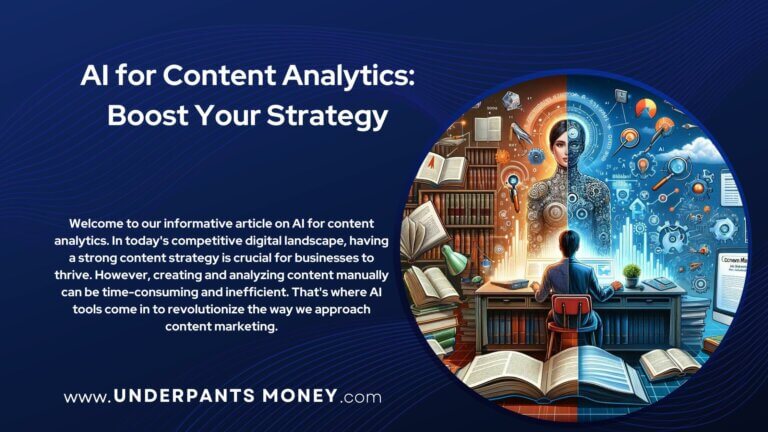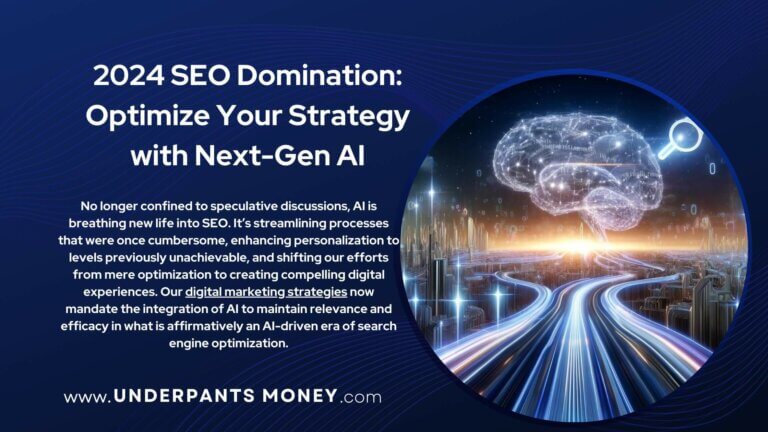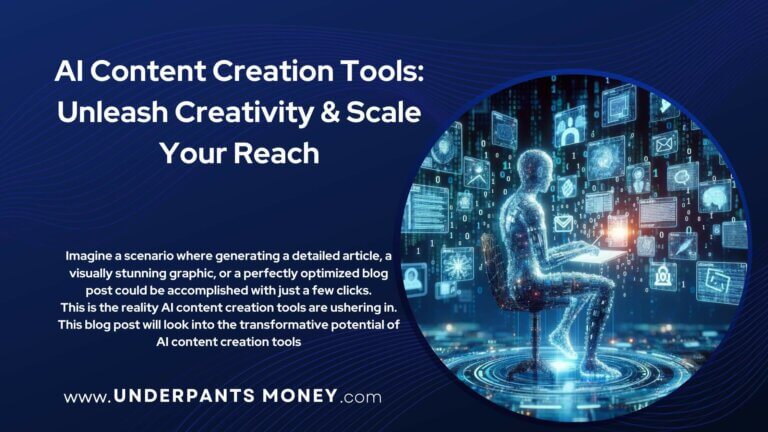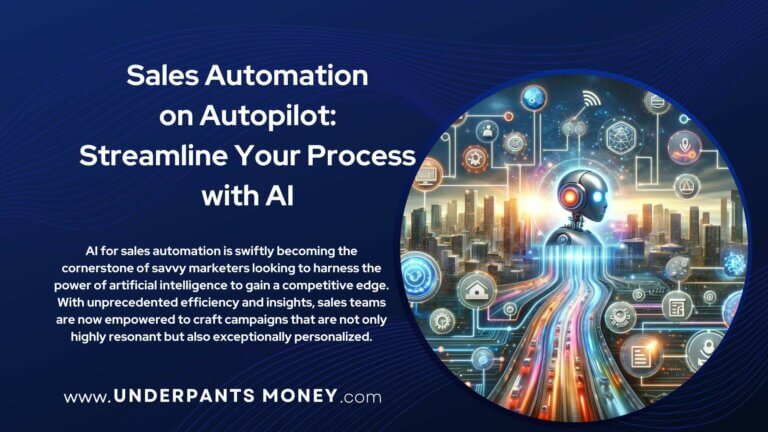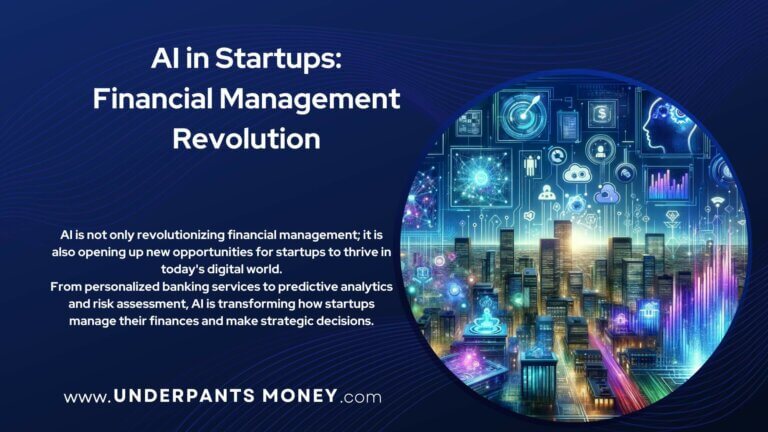Harnessing AI in Influencer Marketing Strategies
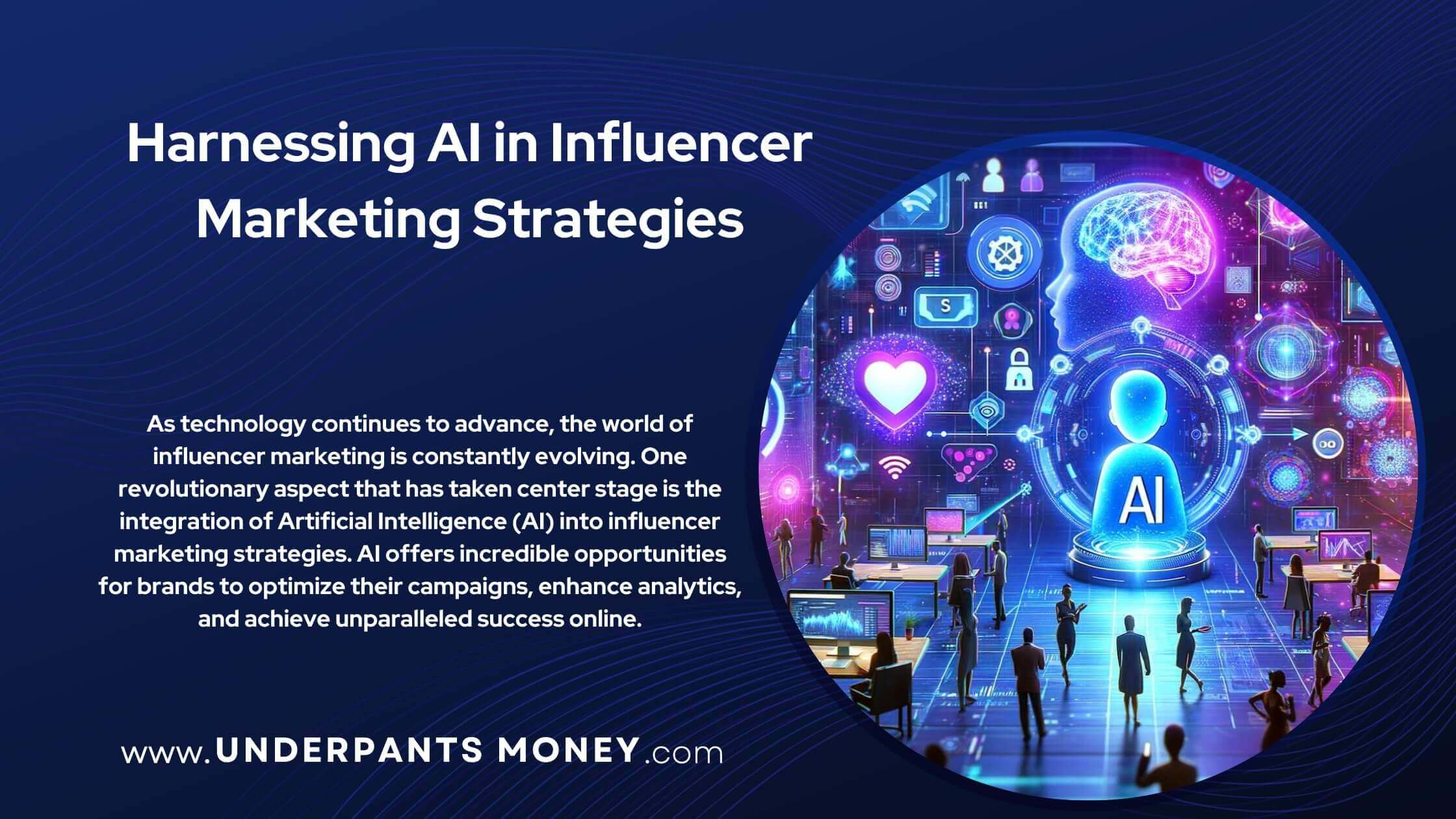
As technology continues to advance, the world of influencer marketing is constantly evolving. One revolutionary aspect that has taken center stage is the integration of Artificial Intelligence (AI) into influencer marketing strategies. AI offers incredible opportunities for brands to optimize their campaigns, enhance analytics, and achieve unparalleled success online.
With AI-powered tools and sophisticated data analysis, brands can gain valuable insights into influencer marketing trends and consumer behavior. By harnessing the power of AI, brands can make data-driven decisions, identify the most relevant influencers for their target audience, and create impactful and engaging content.
Artificial intelligence is not limited to analytics alone. It has also transformed social media by providing brands with the ability to curate and create content that resonates with their audience. AI algorithms can suggest tailored content strategies, optimize posting times, and even assist in content creation, allowing brands to deliver content that captivates and connects with their followers.
While AI offers substantial benefits, there are also challenges to consider. Maintaining authenticity in influencer marketing is crucial for building trust with consumers. Critics argue that AI-generated content may lack the personal touch and genuine experiences of human influencers. Striking the right balance between leveraging AI and preserving the human element is essential.
As brands navigate these opportunities and challenges, it is crucial to maximize the impact of AI-driven content. By utilizing AI tools for analytics and content enhancement, collaborating with AI-savvy influencers, and employing AI algorithms for targeted audience engagement, brands can create campaigns that are both effective and authentic while adhering to ethical standards.

Key Takeaways:
- AI in influencer marketing revolutionizes brands’ abilities to optimize campaigns and enhance analytics
- AI tools can suggest tailored content strategies, optimal posting times, and assist in content creation
- Maintaining authenticity is crucial, as AI-generated content may lack the personal touch of human influencers
- To maximize impact, brands should leverage AI tools, collaborations with AI-savvy influencers, and targeted audience engagement
- Striking the right balance between AI and human creativity is the key to impactful and authentic influencer marketing campaigns
AI’s Evolving Role in Influencer Marketing
Artificial intelligence (AI) is playing an increasingly vital role in influencer marketing, revolutionizing the way brands connect with their audiences. Through AI-driven tools and predictive analytics, brands can optimize their influencer campaigns and achieve unparalleled success online. Let’s explore how AI is transforming the influencer marketing landscape.
AI tools for influencer marketing offer invaluable insights that help brands understand and anticipate the needs of their target audience. By analyzing vast amounts of data, AI can suggest tailored content strategies, optimal posting times, and suitable content formats to maximize engagement.
One of the key advantages of AI in influencer marketing is its ability to assist in content creation and curation. AI algorithms can generate engaging captions, optimize image aesthetics, and even suggest trending themes. This technology empowers brands to create compelling and relevant content that resonates with their audience.
In addition to content optimization, AI also provides influencer marketing analytics that help brands make informed decisions. By analyzing campaign performance metrics, AI-driven analytics tools enable brands to refine their strategies and identify areas for improvement. This data-driven approach ensures that influencer campaigns are continuously optimized for success.
To illustrate AI’s transformative power in influencer marketing, consider the following scenario:
A beauty brand using AI tools for influencer marketing discovered through analytics that their target audience is particularly receptive to skincare tutorials. With this knowledge, they collaborated with influencers who excel in creating skincare content and received outstanding engagement. By leveraging AI-driven insights, the brand optimized their campaign, resulting in an increase in brand awareness and ultimately driving sales.
AI’s Impact in Influencer Marketing
| Benefits | Examples |
|---|---|
| AI-powered analytics | Providing data-driven insights and metrics for campaign optimization |
| Content creation and curation | Generating engaging captions, optimizing image aesthetics, suggesting trending themes |
| Audience targeting | Identifying the most relevant audience segments for effective influencer campaigns |
As AI continues to evolve, its role in influencer marketing will only become more prominent. Brands that embrace AI tools for influencer marketing and leverage the power of predictive analytics will gain a competitive edge in reaching and engaging their target audience. By optimizing influencer campaigns with AI, brands can unlock new levels of success and maximize the impact of their influencer marketing efforts.
AI’s Authenticity Challenge in Influencer Marketing
While AI offers many advantages, it also poses challenges to maintaining authenticity in influencer marketing. One such challenge is AI-generated content, which may lack the personal touch and genuine experiences of human influencers. Critics argue that using AI to mimic diversity reduces cultural experiences to mere aesthetics. In order to establish and maintain authenticity in influencer marketing, it is crucial to preserve the human element that creates connection and trust with consumers.
To overcome the authenticity challenge in influencer marketing, brands need to strike a balance between leveraging AI’s capabilities and staying true to authenticity. While AI can enhance efficiency and offer data-driven insights, it should not replace the essence of human interaction and creativity. Collaborating with real influencers who possess authenticity and a genuine connection with their audience is essential for building trust and fostering engagement.
Businesses must remember that maintaining authenticity is synonymous with maintaining ethical standards. Utilizing AI to supplement influencer marketing strategies should be done ethically and responsibly, ensuring that content aligns with core values and resonates with the target audience.
Advantages and Disadvantages of AI-generated Content
Let’s take a closer look at the advantages and disadvantages of AI-generated content in influencer marketing:
| Advantages of AI-generated Content | Disadvantages of AI-generated Content |
|---|---|
| Efficiency in content creation and curation | Lack of personal touch and genuine experiences |
| Potential for data-driven insights | Possible reduction of cultural experiences to aesthetics |
| Consistency in content delivery | Risk of eroding trust and connection with consumers |
While AI-generated content can provide efficiency and consistency in influencer marketing campaigns, it is important to carefully consider the potential drawbacks to maintain authenticity and effectively connect with consumers.

Maximizing Impact With AI-Driven Content
To maximize the impact of AI in influencer marketing, brands can leverage AI tools for analytics and content enhancement. These tools provide invaluable insights to refine content strategies and enhance the overall aesthetics of campaigns.
Collaborating with AI-savvy influencers is a smart way to harness the power of AI effectively. These influencers are well-versed in utilizing AI to its full potential, allowing brands to tap into their expertise and amplify their marketing efforts.
AI algorithms play a crucial role in audience targeting, enabling brands to create more focused and tailored campaigns. By leveraging AI, brands can analyze data and identify the right audience segments, leading to more efficient and impactful influencer collaborations.
However, it is important to avoid overreliance on AI and maintain authenticity and ethical standards. While AI offers valuable insights and automation, human creativity and connection are essential for creating a genuine connection with audiences.
Avoiding the pitfalls of overreliance on AI ensures that the content remains authentic, resonates with the audience, and builds trust. Brands need to strike a balance between leveraging AI’s capabilities and maintaining their unique voice and values.
Remember, authenticity and ethical standards are paramount in influencer marketing. By combining the power of AI with human creativity and maintaining ethical practices, brands can maximize their impact, drive engagement, and create successful influencer marketing campaigns.
Conclusion
AI’s impact on influencer marketing cannot be understated. It has reshaped the landscape of this dynamic industry, providing numerous opportunities and challenges for brands. Successful integration of AI in influencer marketing strategies requires striking the right balance between leveraging AI’s capabilities and maintaining human creativity.
By harnessing the power of AI, brands can create impactful, authentic, and engaging campaigns that resonate with their target audiences. AI-driven tools and analytics offer sophisticated data analysis and insights, optimizing campaign performance and enhancing overall analytics.
Furthermore, the benefits of AI in influencer marketing extend beyond analytics. AI tools assist in content creation and curation, suggesting tailored strategies, optimal posting times, and content formats that align with the preferences of the target audience. Utilizing AI-savvy influencers also ensures that brands are maximizing their AI investments.
As we venture into 2024 and beyond, successfully integrating AI in influencer marketing strategies will be crucial for brands to achieve unmatched success online. By staying agile and adapting to an ever-evolving influencer landscape, brands can capitalize on AI to create authentic and engaging campaigns that leave a lasting impact on their target audience.


